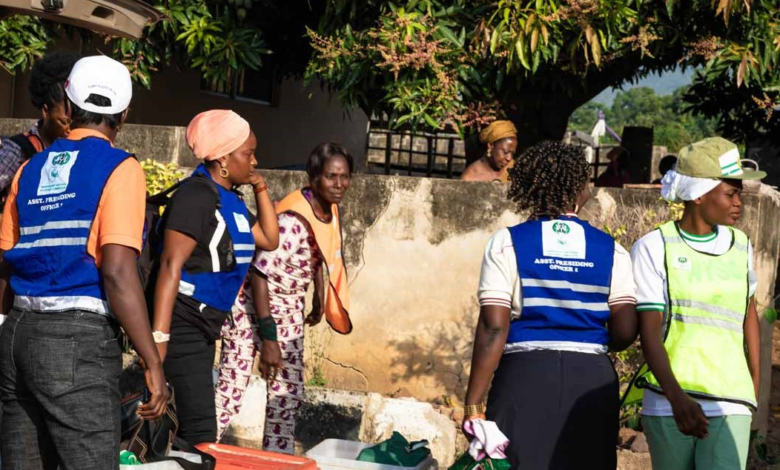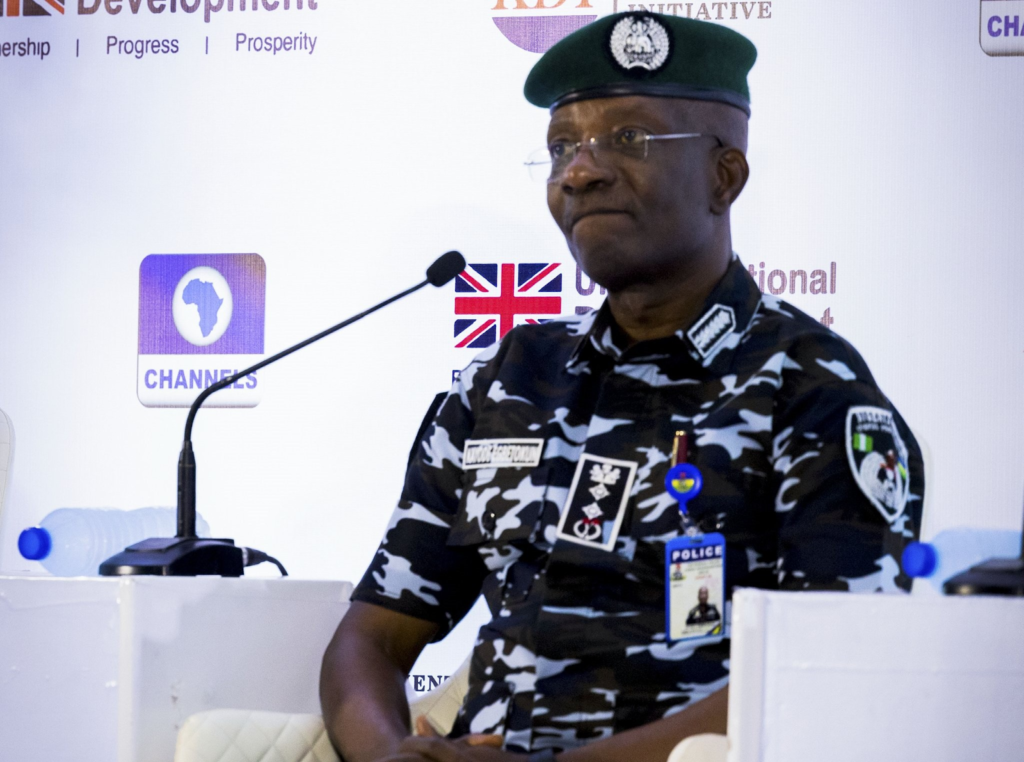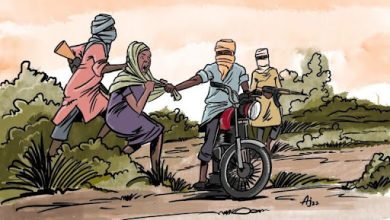Nigeria’s Off-Season Polls: As Election Day Draws Near, Terror Lurks Around Kogi’s Streets
Kogi State in the North-central region of Nigeria, has the highest number of recorded electoral violence among the three states scheduled to hold off-cycle elections on Nov. 11, according to a KDI report. The think tank says it surveyed the dynamics of violence in the state and noted that electoral violence has become more prevalent than other forms of violence.

Blessing Ubodo was happy to work as an ad-hoc staff for Nigeria’s elections body known as the Independent National Electoral Commission (INEC). She was undergoing the mandatory National Youth Service Corps programme at the time, which all university graduates are required to do.
She had also been forewarned that election duties in Kogi State in North-central Nigeria where she was slated to work, were not for the soft-hearted; the stipend that came with the job would not let her listen.
“It all ended in tears,” she curtly said.
On Feb. 3, Nigeria’s recent presidential election day, Ubodo and other INEC staff were deeply asleep, around 4 a.m. when armed and menacing men invaded the Dedeji Open Space, a polling station in Lokoja, the state capital. Wielding guns, clubs, and charms, the suspected political thugs first broke bottles to scare the officials away and then shot in the air.
Barefoot, Ubodo took to her heels, stepping on the shards of broken bottles; the sharp rubbles would not spare her naked feet. The violent incident did not happen by accident, she said. The political assailants had targeted the location because it was the stronghold of an opposition party. Although security forces later took over to restore sanity in the polling expanse, Ubodo said she had sustained injuries that would take weeks to heal.
“I was bittered when I saw scars all over my body and I nursed the pain for weeks,” she recalled, sharing a video clip of her bruised body. “Since then, I decided I would not participate in any electoral activity again because I saw hell that day.”
Like Ubodo, Azeezat Kareem, a trainee lecturer at the Kogi State Polytechnic, said she had vowed to travel out of the state and return only after the election. As a new resident in Lokoja, Azeezat said she has observed that terror is hanging on the streets over the choice of candidates in the forthcoming governorship election.
“People have been talking about the toxic and bloody nature of elections in Kogi state,” she told HumAngle. “There have also been reports of attacks from different thugs loyal to some political parties and politicians.”
The atmosphere of fear over the governorship poll solidified the pre-election violence assessment reports by the Kimpact Development Initiative (KDI), a Nigerian democracy and governance think tank. In a comparative look at the record of the number of electoral violence incidents per state, especially between January 1 and Oct. 6, across Nigeria, Kogi is the fifth state with the highest number of electoral violence incidents amongst the 36 States, according to the report.
Outside the general elections, off-cycle polls are scheduled by INEC for different reasons, including the threat of political violence and the cancellation of election results. In 2007, for instance, the appeal court ordered INEC to conduct a fresh governorship poll in Kogi, after one of the candidates, Abubakar Audu of the All Nigeria People Party (ANPP), contested the victory of his major opponent, Ahmed Idris, of the Peoples Democratic Party (PDP).
Although Idris would re-emerge as the governor of the state, the election schedules in Kogi have not remained the same since. Like Kogi, Imo and Bayelsa states have also had reasons to hold off-season governorship elections. All three states will be holding elections on Saturday, Nov. 11, eight months after the general elections for other states were held, but stories of pre-election violence keep surfacing on social, traditional, and conventional media pages.
Kogi has the highest number of electoral violence among the three states holding the off-cycle elections, according to the KDI report. The think tank said it surveyed the dynamics of violence in Kogi and noted that electoral violence has become more prevalent than other forms of violence in the state. It also stated that there has been exacerbated political tension in the state ahead of the gubernatorial poll.
“The number of electoral violence cases and fatalities across the 21 LGAs in Kogi is uneven, with areas like Dekina having as high as 17 fatalities and 11 electoral violence cases,” the KDI report stated. “Kogi State has its dominant political party with a corresponding stronghold per LGAs. This, coupled with the unresolved internal party issues, is a precursor for the high likelihood of electoral violence.”
The deep-roots of electoral violence
In the middle of the electioneering and political gymnastics, Muhammad Yabagi, a public analyst, reviews the election season incidents in the state. Yabagi said as election day draws near, residents are becoming more tense because things are sailing close to the wind. Attacks and counterattacks by thugs loyal to different political groups have turned elections in Kogi into some intra-communal war.
The sitting Governor, Yahya Bello, is from Kogi-Central and he has said he wants Ododo, his protege from the same region, to succeed him. Bello was the first Governor to emerge from Kogi-Central. In the past, only candidates from Kogi-East, the senatorial zone with the largest local governments and population in Kogi, have ruled the state.
The population dominance of the Kogi-East people appears to have given the Social Democratic Party (SDP) candidate, Murtala Ajaka, a high chance of victory — “since democracy is a game of numbers,” Yabagi said. But there is a problem: Ododo, the candidate for the ruling APC is from the centre of the state, and the Governor — with his power of incumbency is standing behind him. Yet the people from Kogi-West, where Dino Melaye of the Peoples Democratic Party (PDP) comes from are clamouring that it is high time someone from their region became a governor.
The fear of losing the incumbency power by the ruling party, coupled with the popularity of the SDP candidate from Kogi-East and the our-turn-to-rule propensity of the Kogi-West are major factors contributing to the heightened security threats in the political space of the state. Unfortunately, the political landscapes are divided along ethnic lines, flaming existing feuds among the ethnic groups in the state. Already, Kogi is one of Nigeria’s red zones for rural banditry (or terrorism) and the fatal farmer-herder crisis.
However, the communal crisis disappeared as soon as elections made Kogi’s fermement cloudy. Random cases of political assassinations, thuggery and disruptions of political rallies stayed far above the existing crises as the state moved closer to the election day.
On Nov. 7, suspected political thugs attacked the residence of the SDP’s Director-General in the state, killing a policeman and four other persons. On the same day, security forces said they killed three political thugs and recovered two AK-47 riffles from them. Also, in July, some hoodlums allegedly attacked the convoy of Governor Bello, injuring some of his aides. Security threats in Kogi have heightened as the polling approaches. And on Oct. 1, the Kogi police command said it was investigating the attacks on SDP’s campaign rally in Koton-Karfe.
“Since the campaign started, I have been attacked more than 30 times,” claims the SDP governorship candidate in a recent interview with TVC. “I have reported these attacks to the police and they did not take any action.”
The pattern of attacks appears to be similar to the trajectory of bloodshed in many of Kogi’s political seasons. In 2019, for instance, 10 deaths, 79 cases of violence and election malpractices were recorded across the 21 local government areas of the state, according to a report by the Centre for Democracy and Development. During the general election, on March 19, six INEC officials were declared missing after gunmen launched attack on the Abajana area of the state, leaving several other officials with gunshot wounds. Also in February, INEC threatened to cancel elections in several polling units in Kogi over reported cases of ballot snatching. In some polling units in Anyigba and Dekina in the Kogi East and Mopa in the Kogi West, suspected political thugs were said to have carted election materials away.
The militarisation of election

On Sunday, Nov. 6, hundreds of heavily armed soldiers trooped into the Kogi city, demonstrating what many described as a “show of force”. The combined force for ‘Operation Safe Conduct’ had flagged off at the headquarters of 12 Brigade Nigerian Army Parade Ground, Chari Maigumeri Barrack in Lokoja. Although a section of Kogi jubilated to welcome the soldiers into the seemingly toxic political scene, others feared the heavy military presence might cause voter intimidation.
Additionally, the police command in Kogi said it was set to deploy over 40,000 officers across the state to ensure a peaceful election on Nov. 11. Some electorates in Kogi, whom HumAngle spoke with, said they do not trust the police and army officials would not be working for the incumbent government.
“We expect violence, especially in Kogi-East; it is not out of place to expect voter apathy in an election such as this,” said Yabagi. His claim was corroborated by many other Kogi residents we spoke to. “There is currently overmilitarisation of the election in Kogi, especially in the major town of Kogi-East. There is fear of the use of violence and intimidation and all of that. But there’s this will by many citizens to come out and exercise their franchise.”
To Abdulrahman Yahya, a Kogi citizen and political analyst, Kogi-East appears to be the most volatile area for political thuggery and attacks. He said thugs suspected to be working for the outgoing governor had on many occasions attacked political rallies by his major opponents in the area. He said military officers have since their arrival mounted checkpoints in the cities and towns of Kogi — in about five days before the election.
“People already know the pattern of intimidation by the ruling class and I can say a lot of people are willing to still come out and vote while many are also scared. In my place in Abocho, a week ago, there were random gunshots; so people already know that there would be violence in that area on election day,” Yahya said.
“Now soldiers are all over the place but there is still this belief that these soldiers might be working for the ruling party. This time around, people are braver to come out to vote because it is very clear that it’s a tribal thing: Dino Melaye is from Okun, Ododo is from Igbira and the other one is from Igala. So it is going to be very tough.”
Authorities speak
Amid emerging and trending stories of political assaults and arson of party offices and billboards, among other electoral violence, Governor Yahaya Bello pledged peaceful conduct during and after the governorship election. But some of the governor’s critics say his words should not be trusted, especially because the presidential election was marred by bloody clashes and violence — under his watch.
“Ethnic sentiments set Kogi back for 19 years, and we must break away from that for competence,” the Governor declared while addressing some journalists in October. “My administration has changed the narrative of ethnicity and has been appointing and working with competent people as opposed to choosing people from tribes in the state.”
Meanwhile, Nigeria’s Inspector-General of Police (IGP), announced that starting from Friday, Nov. 10, there would be restricted movements of vehicles in Kogi and other states where elections will take place. During a town hall dialogue with stakeholders on Nov. 5, the IGP expressed the commitment of the police to ensure adequate security throughout the election processes.
“There’s a large pool of resources to draw from with respect to security. Security operatives are being deployed,” Egbedokun said. “The police and other security agencies are ready for this election.”
Support Our Journalism
There are millions of ordinary people affected by conflict in Africa whose stories are missing in the mainstream media. HumAngle is determined to tell those challenging and under-reported stories, hoping that the people impacted by these conflicts will find the safety and security they deserve.
To ensure that we continue to provide public service coverage, we have a small favour to ask you. We want you to be part of our journalistic endeavour by contributing a token to us.
Your donation will further promote a robust, free, and independent media.
Donate HereStay Closer To The Stories That Matter




